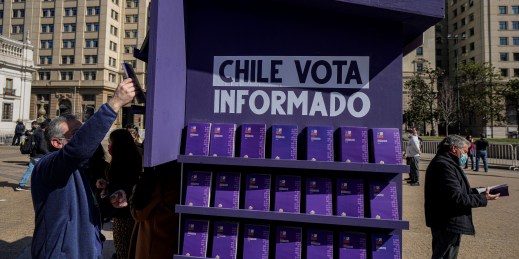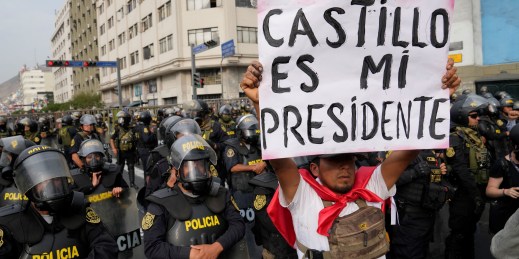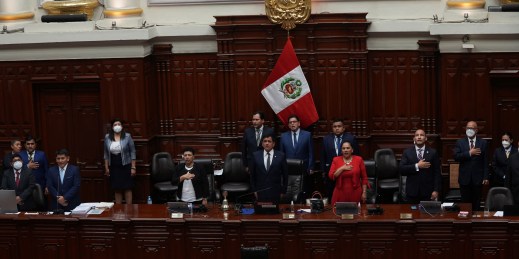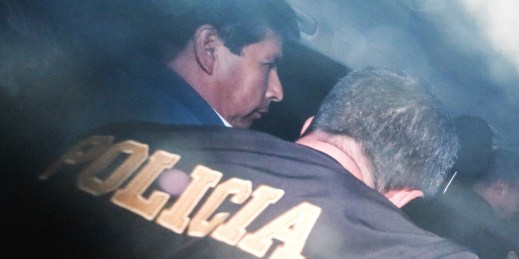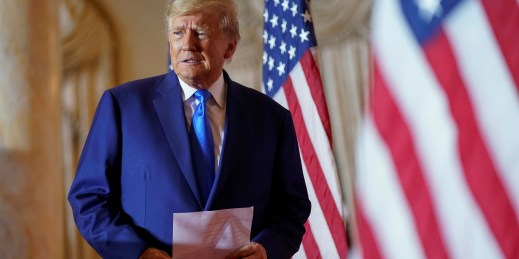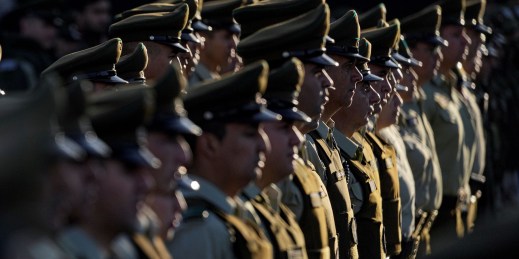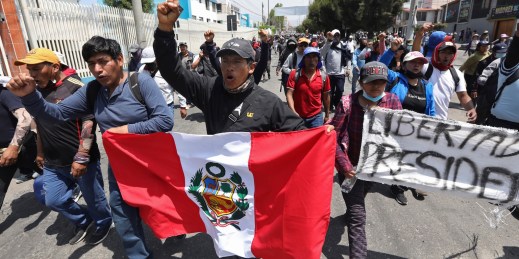
Since the impeachment of Peru’s President Pedro Castillo on Dec. 7, protesters have been demanding “que se vayan todos,” which roughly translates to “get rid of them all.” But even though Peru’s Congress has now responded to calls for early elections, the anger that fueled the protests cannot be quickly overcome.

